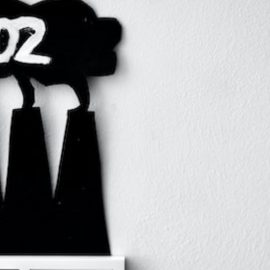

This article is an excerpt from the Shortform book guide to "This Naked Mind" by Annie Grace. Shortform has the world's best summaries and analyses of books you should be reading.
Like this article? Sign up for a free trial here.
Does alcohol help you relax? How much wine is good for you on a daily basis? Why do so many people struggle to stay sober, even after treatment programs?
You’re being lied to. Society promotes untruths about alcohol that make people think it’s beneficial, at least when it’s “done right.” That’s the view of Annie Grace, who says that ignorance about alcohol and its abuse lulls people into a false sense of safety in regard to drinking, ultimately leading to addiction for many.
Keep reading to learn five myths about alcohol that will cause you to think again about your habits and health.
Myths About Alcohol
You might know consciously that alcohol is a dangerous drug that can hook anyone who drinks it. But, Grace argues that this knowledge is often not enough to stay sober after you quit alcohol. You also need to change your subconscious mind, which still thinks that alcohol is good and that abstaining from it means losing something valuable.
(Shortform note: In Behave, Robert Sapolsky agrees with Grace that your subconscious beliefs shape your behavior. He explains that people naturally follow the values and beliefs of the culture they grow up in, often without questioning them. This means that if you don’t actively challenge your beliefs, you’ll inherently accept how society portrays alcohol as true. This explains why it’s important to examine and change your subconscious mind, as Grace suggests.)
But, what unconscious beliefs might you have? What myths about alcohol do you believe? Grace writes that alcohol is a big part of Western society and culture. Drinking is common in many cultural traditions—from weddings to football games. On top of that, advertisements, friends and family, movies, and social gatherings all lead you to the false conclusion that alcohol is good.
(Shortform note: Research reveals how glorified alcohol is in American culture: According to one study, almost one in four songs on Billboard’s Hot 100 list reference alcohol. In addition to this, alcohol marketing in movies has doubled in the last two decades. In Quit Like a Woman, Holly Whitaker explains why alcohol marketing is so abundant: Most alcohol brands are owned by one of 16 companies, making the alcohol industry highly competitive.)
Grace argues that, as long as you subconsciously think alcohol is good for you, quitting will be hard. To live a life free of alcohol, you must challenge your beliefs that alcohol has any value or benefit, understand where those beliefs come from, and question the reasons you drink. Once you see alcohol as a poison, not an antidote, you won’t want to drink anymore.
(Shortform note: Grace’s aims to help you change your beliefs about alcohol by exposing the myths and misconceptions many people have about drinking, but you can also apply a general framework for questioning your beliefs and opinions on any subject. In 101 Essays That Will Change the Way You Think, Brianna Wiest suggests you ask yourself several questions: When did you first encounter this belief? How does this belief affect how you judge yourself and others? How would your life change if you believed the opposite? And how would your best self think about this issue?)
Let’s explore some beliefs that lead people to drink and discuss why alcohol doesn’t provide the benefits that people believe it provides.
False Belief #1: Alcohol Tastes Good
Some people claim to enjoy alcohol because of its taste. But Grace writes that it’s not the alcohol that they like but the flavor of other ingredients in their drink—such as the juice or the sugar. In fact, many people dislike their first sip of alcohol, which should be a sign that it’s bad for us. Our taste and smell are two senses that warn us about things that are bad for us or could make us sick, such as rotten foods and, in this case, alcohol.
However, we ignore our senses and continue consuming alcohol because of the societal conditioning we’ve received throughout our lives. We reason that, despite its taste, alcohol must improve our lives in some way because so many people drink it. We’re even told that we must acquire a taste for it. However, the unpleasant taste, in fact, makes us feel safer from addiction because we assume we can’t become addicted to something that we don’t enjoy the taste of.
| The Factors That Shape Our Taste Preferences Are Complex Grace writes that the bad initial taste of alcohol is a sign that it’s bad for us, but other experts point out that the subject of taste is slightly more complicated than that. They state that our survival needs play only one part in influencing our taste preferences. While it’s true that inedible, rotten, or poisonous foods often have a bitter or sour taste, plenty of healthy foods, like certain vegetables, are also bitter. Therefore, just because people tend to like or dislike the tastes of certain foods doesn’t necessarily mean that they’re good or bad for us. We commonly assume that certain substances like alcohol or coffee are acquired tastes, but experts argue that most tastes are actually acquired. Acquired tastes include any foods we grow to like that don’t initially appeal to our innate biological desires—for example, yogurt, hot sauce, or ginger. Thus, we learn to like these foods just as we learn to like alcohol. |
For other people, it’s less about the taste of alcohol itself, but how alcohol makes other foods taste. However, Grace argues that alcohol doesn’t improve the flavor of food, but actually makes it worse. She explains that alcohol numbs your taste buds, making them less sensitive to the flavors of food.
(Shortform note: Although drinking alcohol may not enhance the taste of foods, it does tend to increase your appetite. Studies show that people tend to eat more after drinking alcohol for several reasons: Alcohol is believed to inhibit the effects of leptin, which is a hormone that reduces your appetite. Also, some research indicates that alcohol stimulates the neurons in your brain that activate when you’re starving.)
False Belief #2: Alcohol Is Healthy in Moderation
Another belief people hold is that drinking in moderation is actually good for health. However, Grace writes that this isn’t true: Drinking any amount of alcohol is bad for your health. She explains that alcohol affects your body in many negative ways: It slows your brain functioning, hinders your ability to regulate emotions, weakens your heart, increases the risk of blood clots, damages your liver, weakens your immune system, and can even cause cancer and early death.
(Shortform note: Alcohol can harm the health of anyone who consumes it, but studies show that women are more at risk of suffering from the negative health effects that Grace lists. Experts say this is because of several factors: First, women’s bodies have proportionately less water and more fat than men’s bodies. Water helps dilute alcohol, while fat retains it. This means that alcohol stays in higher concentrations and for longer periods in women’s bodies. Another factor is that women have less of an enzyme that breaks down alcohol before it enters the bloodstream. Because of this, they typically have higher blood alcohol levels than a man who drinks the same amount.)
If alcohol has such harmful effects, why do some studies show that drinking is good for your health? Grace explains that alcohol does have some medicinal properties, but they aren’t great enough to outweigh the harms of drinking. She elaborates that there are much better alternatives that can provide the same benefits without the risks. For example, drinking juice that’s rich in antioxidants will likely give you the same benefits as drinking wine.
(Shortform note: Like Grace, many experts question the belief that moderate drinking is healthier than abstaining from alcohol completely. They argue that the studies that support this belief are flawed and misleading. These studies imply that moderate alcohol consumption leads to better health when other factors actually account for these health differences. People who avoid alcohol often do so because of existing health problems, disabilities, or lower income levels, whereas people who drink moderately tend to be wealthier and have healthier habits.)
False Belief #3: Alcohol Relaxes You and Improves Your Mood
Grace claims that many people also drink because they believe alcohol helps them relax and feel happier. They think alcohol can make their problems go away or make them forget about them. However, Grace challenges this belief and says that alcohol isn’t a real solution: Drinking only dulls your feelings and thoughts for a short time—it doesn’t change anything about your situation or emotions. When the alcohol wears off, you’re left with the same issues that made you unhappy or stressed in the first place, prompting you to drink even more to find relief.
(Shortform note: Alcohol not only fails to solve any problems, but it can also prevent you from growing as a person. In Untamed, Glennon Doyle describes how she had used alcohol to cope with her strong emotions, and she argues that you should embrace even the most painful emotions rather than try to numb them. She explains that your emotions can teach you a lot about yourself, and painful emotions are often the best guides to becoming the most authentic version of yourself.)
Not only does alcohol fail to provide any real solutions to your problems, but it tends to worsen your mood. The more you rely on alcohol to bring you happiness and relief, the harder it becomes for you to naturally feel good. To truly relax and improve your mood, Grace writes that you must tackle the source of your stress or unhappiness. Using alcohol to handle your problems only leads to more problems and more drinking.
(Shortform note: In The Upside of Stress, Kelly McGonigal writes that avoiding stress is harmful because it only causes new stresses. Rather than rely on substances like alcohol to give you temporary relief, McGonigal suggests you adopt a more positive stress mindset to effectively overcome challenges. You can do this by thinking about your resources (such as your strengths, positive memories, loved ones, and so on), connecting with others, focusing on a purpose bigger than yourself, and talking about your stress more openly. Transforming your stress mindset can empower you to tackle the source of your stress rather than avoid it by drinking.)
False Belief #4: Alcohol Helps You Function Better
Another reason people drink is because they think it makes them the best versions of themselves, helping them be more interesting, confident, or better at sex. They think alcohol helps them overcome fears or shyness, allowing them to make new friends at a party or talk to a crush. However, Grace writes that alcohol actually causes you to function worse. It may help you care less, but it ultimately numbs your senses, lowers your inhibitions, and prevents you from thinking clearly.
(Shortform note: The reason alcohol impairs rather than improves your functioning is that it’s a central nervous system depressant. Depressants are drugs that slow your brain functioning and neural activity. The opposite of depressants are stimulants, which increase energy and alertness. Although alcohol is classified as a depressant, it initially provides stimulating effects, which reduce social inhibitions and may trick you into believing that you’re functioning better. However, it ultimately slows your brain activity and does the opposite, impairing your cognitive functioning.)
Grace writes that shyness and fear are natural and even helpful emotions. They help us decide what’s appropriate to say and do. They also motivate us to prepare well for challenging tasks. By numbing these emotions with alcohol, we not only miss out on their benefits and perform our tasks poorly, but we also risk our safety and well-being as well as those of others. Grace writes that alcohol not only reduces sexual desire and performance, but it also increases the likelihood of dangerous behavior such as sexual assault.
(Shortform note: In Talking to Strangers, Malcolm Gladwell explains that drinking alcohol not only prevents you from knowing how to act and express yourself, but it also prevents you from understanding others accurately, which becomes dangerous for sensitive situations like those that involve sexual consent. These effects happen because alcohol affects your brain and puts you in a state of myopia. In this state, your attention narrows so that you only focus on the immediate present and no longer consider future consequences.)
False Belief #5: Alcohol Enhances Social Experiences
Another reason people drink is that they believe it makes social experiences better and more enjoyable. Grace points out that alcohol is so strongly associated with celebration in society that we assume the joy we feel is due to the alcohol. What many of us don’t realize is that the joy comes from spending time with others and doing activities that you enjoy, not from drinking.
(Shortform note: Some research shows that the belief that alcohol enhances social experiences and makes people happier is largely due to the placebo effect—when you take a drug and experience the desired outcome not because the drug works but because you believe it works. In the study, people who believed they were drinking (despite having received nonalcoholic drinks) reported feeling more inebriated while those who believed they were drinking nonalcoholic drinks (while given actual alcoholic drinks) reported fewer symptoms of inebriation. This suggests that the alcohol itself doesn’t increase enjoyment, but rather the expectation and belief that alcohol will do so.)
Grace challenges you to think back to the happy memories you had before you started drinking. Doing this will help you realize that you don’t need alcohol to enjoy yourself. You can also try not drinking during one social gathering. You’ll likely find that social experiences are even more fun and rewarding when you’re sober, Grace writes.
(Shortform note: A growing movement called sober curiosity calls for people to be mindful and question their relationship with alcohol, even if they don’t struggle with alcohol dependence. Like Grace’s suggestions, this movement encourages people to reflect on widely accepted beliefs about alcohol, form their own opinions, and seek alternative ways to have fun or relieve stress. Establishments have caught on to this movement as well, and if you want to try Grace’s experiment to not drink during one social gathering, you could consider going to a sober bar.)

———End of Preview———
Like what you just read? Read the rest of the world's best book summary and analysis of Annie Grace's "This Naked Mind" at Shortform.
Here's what you'll find in our full This Naked Mind summary:
- The real reason why it's so hard to quit drinking
- How alcohol affects your brain and body and leads to addiction
- How to break free from alcohol dependence by changing your mindset






